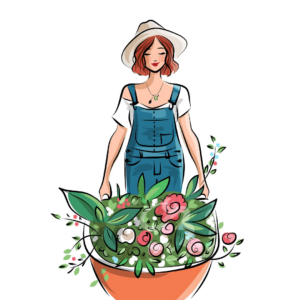 I love spending time in my garden, but mid-summer can be a challenging time for gardeners. The sun blazes, the temperatures soar, and plants can easily become stressed. However, with a few thoughtful strategies, you can ensure your garden remains vibrant and productive through the hottest months. Here are some essential mid-summer gardening tips to keep your green space thriving.
I love spending time in my garden, but mid-summer can be a challenging time for gardeners. The sun blazes, the temperatures soar, and plants can easily become stressed. However, with a few thoughtful strategies, you can ensure your garden remains vibrant and productive through the hottest months. Here are some essential mid-summer gardening tips to keep your green space thriving.
Water Wisely
Proper watering is crucial during mid-summer. Water early in the morning or late in the evening to minimize evaporation and ensure the water reaches the roots. Deep, infrequent watering is more beneficial than shallow, frequent watering as it encourages plants to develop deeper root systems. Depending on whether you are a heavy duty gardener or you only dabble, you might consider using soaker hoses or drip irrigation to deliver water directly to the roots, reducing water waste.
Mulch, Mulch, Mulch
Mulching is one of the best things you can do for your garden in the summer. A layer of mulch helps retain soil moisture, suppress weeds, and regulate soil temperature. Organic mulches like straw, shredded leaves, or compost also improve soil quality as they decompose. Aim for a 2-3 inch layer around your plants, but keep the mulch a few inches away from stems and trunks to prevent rot. Live and learn. I lost a couple of tomato plants by not paying attention to that.
Prune and Deadhead
Regular pruning and deadheading are essential to keep your garden looking tidy and encourage new growth. Remove spent flowers to prevent plants from putting energy into seed production. Pruning overgrown or leggy plants helps maintain their shape and promotes healthier, more vigorous growth. Be sure to use clean, sharp tools to avoid damaging your plants. Pruning and deadheading are favorite gardening chores of mine. I thoroughly enjoy both.
Monitor for Pests and Diseases
The heat of mid-summer can stress plants, making them more susceptible to pests and diseases. Keep a close eye on your garden and address any issues promptly. Handpick pests like beetles and caterpillars, or use organic insecticides if necessary. Ensure good air circulation around plants to reduce the risk of fungal diseases, and remove any infected foliage immediately.
Fertilize Smartly
Mid-summer is a good time to give your plants a nutrient boost. Use a balanced, slow-release fertilizer to provide essential nutrients over time. Liquid seaweed or fish emulsion fertilizers are also excellent choices for a quick nutrient boost. Avoid over-fertilizing, as it can lead to excessive foliage growth at the expense of flowers and fruits.
Provide Shade
Some plants, especially those not native to hot climates, may need extra protection from the intense summer sun. Use shade cloths, garden umbrellas, or strategically place taller plants to provide shade for more delicate species. This can help prevent sunburn on leaves and reduce overall plant stress.
Harvest Regularly
If you’re growing vegetables, regular harvesting encourages continuous production. Pick fruits and vegetables as soon as they ripen to prevent them from going to seed and to encourage the plant to produce more. Herbs should be harvested frequently to keep them from flowering and losing flavor.
Keep Yourself Comfortable
Gardening in the heat can be tough on you too. Wear light, breathable clothing, a wide-brimmed hat, and sunscreen. Stay hydrated by drinking plenty of water and take breaks in the shade. Gardening early in the morning or late in the evening can also make the experience more enjoyable and safer.
Plan for the Future
Use mid-summer to plan for the next growing season. Start seeds for fall crops indoors or in a shaded area outdoors. Consider which plants have thrived and which have struggled, and adjust your garden plan accordingly for next year. I also recommend a garden journal. I record what worked and what didn’t and ideas for next year’s planting. It keeps me from making the same mistake twice.
By keeping these mid-summer gardening tips in mind, you can maintain a healthy, productive garden even in the hottest months.
Happy gardening!
Until next time… stay prepped & prepared!


